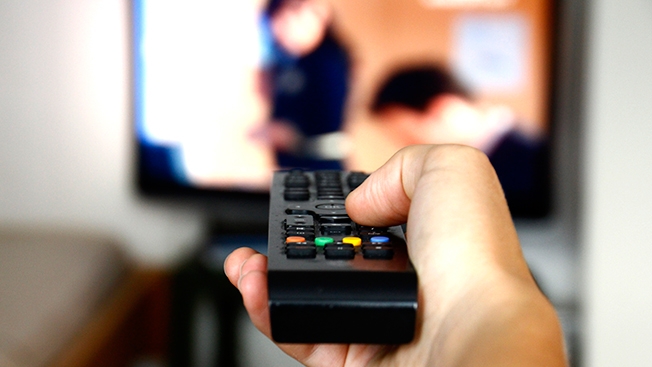
During earnings calls among the major networks last week, there was a consistent refrain: a la carte may be in the news, but it's not on the horizon. Most CEOs simply took questions about a la carte the same way they take all dumb questions: as invitations to discuss their networks' innate superiority to the competition.
"We doubt that it will happen, but if it happens, it probably helps us," said Jeff Bewkes to an analyst who essentially admitted in his question that a la carte was an unlikely proposition. Ken Lowe was perhaps the least equivocal on the Scripps Networks Interactive earnings call this past Thursday: "It's a very remote possibility at this point," Lowe said gently in response to an analyst. "It's not something I think is anywhere near in the future even though it's a little bit in the news these days. Really, it gives me a chance to underscore the value of the video package." Indeed.
So why are we talking about it at all? Well, Time Warner Cable's Glenn Britt suggesting selling cable channels a la carte to CBS head Les Moonves a week ago (a proposal that Moonves laughed off). "If you are unwilling to agree to [the rates we want]," wrote Britt, "we would also be willing to resume carriage by allowing CBS to make its stations available on an a la carte basis at a price and on terms of its choosing, with 100% of that price remitted to CBS."
Let's be clear: nobody, least of all Glenn Britt, thinks this is a good idea. Except maybe people in Congress, and that's why Glenn Britt probably shouldn't be pretending he takes the notion seriously. (Our redoubtable D.C. correspondent Katy Bachman emphasizes, by the way, that the McCain bill referred to in that link isn't going anywhere at the moment.)
Your cable bill is basically socialism. Everybody chips in, and then everybody gets to watch what they want to watch, and everybody pays for a bunch of channels they don't care about. Cable bills are high and will remain high; it's because there aren't any new customers entering the market, so cable providers have to increase earnings in other ways. Time Warner Cable’s own COO Rob Marcus told Bloomberg that the company plans to provide “fewer channels and fewer features.”
But rest assured, if you want to pay for your cable channels individually, you will end up paying a ton more. A report from Needham Insights issued last month suggested that 20 million viewers would pay $30 a month for ESPN, which would give the network the $600 million a month it needs to keep functioning, because that's what it makes today. That's right: you currently pay only $6 a month for ESPN, because you and 100 million other people have the network, and they can afford to take comparatively little from you. Let's say that factor of five holds true across all the networks you watch: suddenly you're paying $6.06 for TNT ($1.21 a month) $4.10 for Fox News ($0.82), and so on down the line. In fact, if you factor in only the top 10 most highly-compensated networks (and ESPN is by far the highest, so they're all south of that $6 figure), you're up to $78 with only ten channels.
Granted, maybe you're not a sports nut. But the lower down on the totem pole you go, the fewer people are watching your favorite programs, and the harder it is to shoulder the burden of those sub fees. The Food Network reaps $20 million a month from subscriber fees—even if you and a million close personal friends decide to sign up for their a la carte service, you still owe them $20 a month.
"At the end of the day, the American consumer would not be well-served by an a la carte environment," said Lowe on the earnings call, and that's putting it mildly. Rights fees on ESPN, for example, cost a jaw-dropping amount of money—the network pays $1.9 billion annually just for NFL football. About $700 million goes to Major League Baseball.
Correspondingly lower-rated networks have correspondingly lower fees, but they're still considerable: Turner pays CBS $1 million an episode just to rerun The Big Bang Theory, never mind producing its own shows like the expensive-looking Frank Darabont noir drama Mob City. I don't know about you, but I want to see that show.
Bewkes, who runs Turner (among the rest of the Time Warner TV properties, including HBO), said he also didn't foresee the end of bundling, so this only-the-networks-I-want thing is for the birds: you'll pay for TruTV if you want to watch TNT, or VH1 Classic if you want to watch Comedy Central, just like your cable company does today. "We think it probably would move, if it does, to smaller bundles of kind of appropriately placed together kinds of networks," Bewkes said. "We do think we'd be really well-positioned in that scenario. What would happen is there would be more money for the biggest networks like ours."
It's true, cable providers pay higher and higher rates for TV networks, and then they pass the savings on to you—but they also hate doing it, and they go to war to avoid it. That doesn't make them heroes—consumers prefer the courtesy and good cheer of employees at Taco Bell to dealing with the average cable provider, but it does mean that if they go away, it won't cost you any less.
Also they'll probably just gouge you for Internet connectivity, instead.





















